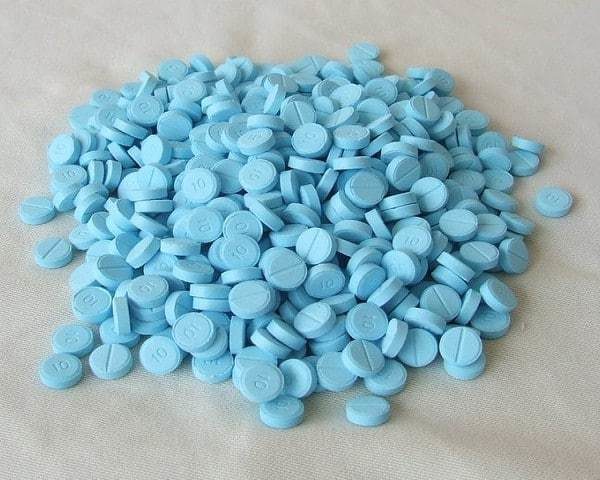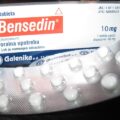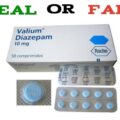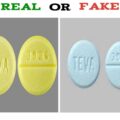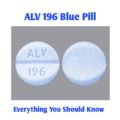What is Blue Haze Diazepam?
Blue haze diazepam is the term used to describe Dan 5620 and Valium and other high dose (usually 10mg) brands of diazepam. Originally used to describe a hybrid cannabis strain with strong genetics, complex flavors and aromas, and potent buds that are treasured by cannabis users around the globe, blue haze is now synonymous with high milligram diazepam on the streets.
Diazepam is a benzodiazepine that is used to treat anxiety disorders, alcohol withdrawal symptoms, or muscle spasms. Diazepam is sometimes used with other medications to treat seizures. Diazepam may also be used for purposes not listed in this medication guide.
Fake Blue Diazepam
According to the BBC, fake valium tablets are now so freely available across Scotland and many other cities around the globe, they have become “cheaper than chips”, a drug expert has warned. The tablets, bought on the street, have been linked to the deaths of six people in the Toryglen area of Glasgow in the past nine months. In some cases, the pills contained etizolam, as a substitute for diazepam. Fake Valium pills were linked to a 43% rise in the number of people in Glasgow who died of drugs overdoses between January and October last year. Many who buy blue haze diazepam online end up as casualties as criminal drug gangs make profits selling counterfeit drugs to unsuspecting buyers.
What are the possible side effects of diazepam?
Get emergency medical help if you have signs of an allergic reaction: hives; difficult breathing; swelling of your face, lips, tongue, or throat.
Diazepam can slow or stop your breathing, and death may occur. A person caring for you should seek emergency medical attention if you have slow breathing with long pauses, blue-colored lips, or if you are hard to wake up.
Call your doctor at once if you have:
- weak or shallow breathing;
- severe drowsiness or feeling like you might pass out;
- depressed mood, thoughts of suicide or hurting yourself;
- confusion, hallucinations;
- anxiety, panic attacks, trouble sleeping;
- hyperactivity, agitation, aggression, hostility;
- unusual risk-taking behavior; or
- new or worsening seizures.
The sedative effects of diazepam may last longer in older adults. Accidental falls are common in elderly patients who take benzodiazepines. Use caution to avoid falling or accidental injury while you are taking diazepam.
Common side effects may include:
- drowsiness;
- tired feeling;
- muscle weakness; or
- loss of coordination.
This is not a complete list of side effects and others may occur. Call your doctor for medical advice about side effects. You may report side effects to FDA at 1-800-FDA-1088.
What is the most important information I should know about diazepam?
You should not use this medicine if you are allergic to diazepam or similar medicines (Klonopin, Xanax, and others), or if you have myasthenia gravis, severe liver disease, narrow-angle glaucoma, a severe breathing problem, or sleep apnea.
MISUSE OF THIS MEDICINE CAN CAUSE ADDICTION, OVERDOSE, OR DEATH, especially in a child or other person using the medicine without a prescription.
Fatal side effects can occur if you use this medicine with opioid medicine, alcohol, or other drugs that cause drowsiness or slow your breathing.
Do not give this medication to a child younger than 6 months old.
What should I discuss with my healthcare provider before taking diazepam?
You should not use this medicine if you are allergic to diazepam or similar drugs (Klonopin, Xanax, and others), or if you have:
- myasthenia gravis (a muscle weakness disorder);
- severe liver disease;
- a severe breathing problem;
- sleep apnea (breathing stops during sleep); or
- alcoholism, or addiction to drugs similar to diazepam.
Tell your doctor if you have ever had:
- glaucoma;
- asthma, emphysema, bronchitis, chronic obstructive pulmonary disorder (COPD), or other breathing problems;
- kidney or liver disease;
- epilepsy or other seizure disorder;
- a drug or alcohol addiction; or
- mental illness, depression, or suicidal thoughts or behavior.
When treating seizures, do not start or stop taking diazepam during pregnancy without your doctor’s advice. Diazepam may cause harm to an unborn baby, but having a seizure during pregnancy could harm both the mother and the baby. Tell your doctor right away if you become pregnant while taking diazepam for seizures.
When treating anxiety, alcohol withdrawal, or muscle spasms: If you take diazepam while you are pregnant, your baby could become dependent on the drug. This can cause life-threatening withdrawal symptoms in the baby after it is born. Babies born dependent on habit-forming medicine may need medical treatment for several weeks. Tell your doctor if you are pregnant or plan to become pregnant.
You should not breastfeed while using this medicine.
Diazepam is not approved for use by anyone younger than 6 months old. Do not give this medicine to a child without a doctor’s advice.
How should I take diazepam?
Follow all directions on your prescription label and read all medication guides or instruction sheets. Your doctor may occasionally change your dose. Use the medicine exactly as directed.
Diazepam may be habit-forming. Misuse can cause addiction, overdose, or death. Keep the medication in a place where others cannot get to it. Selling or giving away this medicine is against the law.
Measure liquid medicine carefully. Use the dosing syringe provided, or use a medicine dose-measuring device (not a kitchen spoon).
Diazepam should be used for only a short time. Do not take this medicine for longer than 4 months without your doctor’s advice.
Do not stop using diazepam suddenly, even if you feel fine. Stopping suddenly may cause increased seizures. Follow your doctor’s instructions about tapering your dose.
Call your doctor at once if you feel that this medicine is not working as well as usual, or if you think you need to use more than usual.
You will need frequent medical tests.
Store at room temperature away from moisture, heat, and light. Keep track of your medicine. Diazepam is a drug of abuse and you should be aware if anyone is using your medicine improperly or without a prescription.
Do not keep leftover diazepam. Just one dose can cause death in someone using this medicine accidentally or improperly. Ask your pharmacist where to locate a drug take-back disposal program. If there is no take-back program, flush the unused medicine down the toilet.
FAQ
What happens if I miss a dose?
Take the medicine as soon as you can, but skip the missed dose if it is almost time for your next dose. Do not take two doses at one time.
What happens if I overdose?
Seek emergency medical attention or call the Poison Help line at 1-800-222-1222. An overdose of diazepam can be fatal.
Overdose symptoms may include extreme drowsiness, loss of balance or coordination, limp or weak muscles, or fainting.
What should I avoid while taking diazepam?
Do not drink alcohol. Dangerous side effects could occur.
Avoid driving or hazardous activity until you know how this medicine will affect you. Dizziness or drowsiness can cause falls, accidents, or severe injuries.
Grapefruit may interact with diazepam and lead to unwanted side effects. Avoid the use of grapefruit products.
What other drugs will affect diazepam?
Taking diazepam with other drugs that make you sleepy or slow your breathing can cause dangerous side effects or death. Ask your doctor before taking a sleeping pill, opioid pain medicine, prescription cough medicine, a muscle relaxer, or medicine for anxiety, depression, or seizures.
Other drugs may affect diazepam, including prescription and over-the-counter medicines, vitamins, and herbal products. Tell your doctor about all your current medicines and any medicine you start or stop using.
Where can I get more information?
Your pharmacist can provide more information about diazepam.
.


